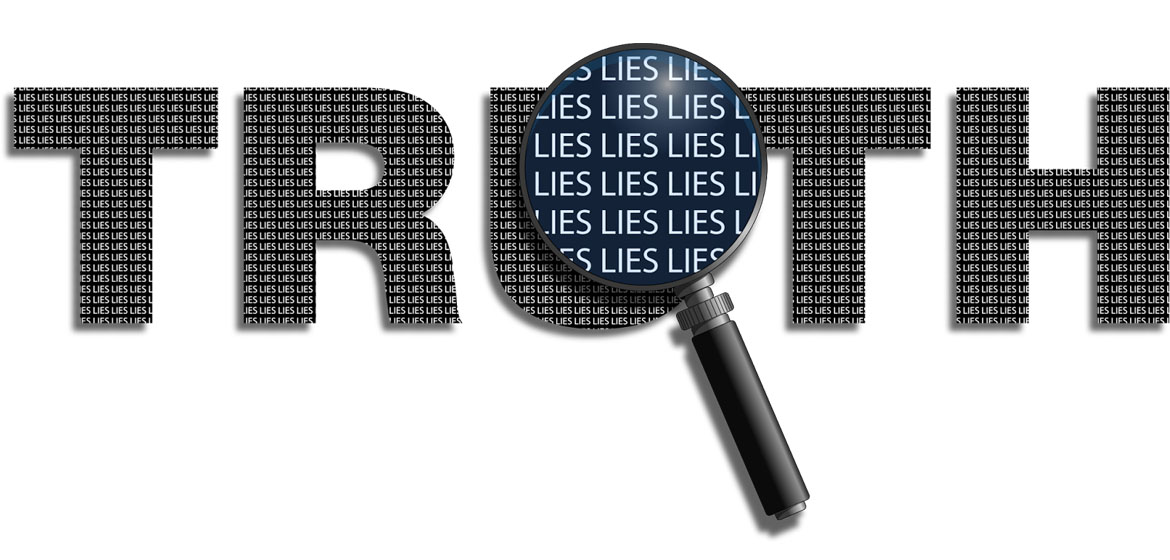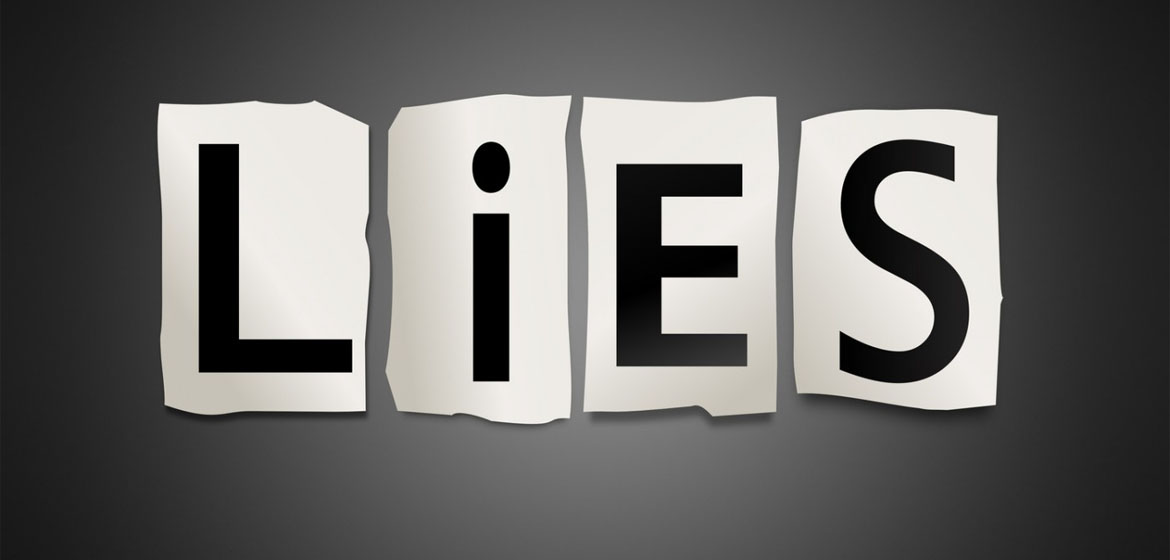One of the big traps in life is an illusion.
It's the belief that you’re making progress when there’s no actual or reliable evidence of it.
It’s easy to keep learning and studying new ideas, methods, and techniques that don’t improve your results while convincing yourself that you must be making progress simply because you’ve invested a lot of time and effort in learning and growth. This is lack of honesty and I am sure you don’t want to acknowledge it.

It would be nice if effort meant results, but it’s very common to apply effort without generating measurable results. Remember auditors need actual, reliable, written and preferably third party evidence before accepting something as having enough value to consider it acceptable!
Evaluating Your Progress
How do you assess your progress?
Do you feel you’re making progress if you’ve studied and practiced a great deal? Or do you only give yourself credit for real-world results that other people can perceive as well?
I think that both types of assessment are valid. I don’t think we should completely discount learning, study, and practice. However, I also think many of us need to move our evaluation criteria further in the direction of measurable, real-world results.
Here are some questions to get you thinking about the differences between study and results:
 Study: Do you think you know a lot about communication skills? Have you read books or attended workshops on soft skills? Do you know how to approach people and start conversations? Do you know how to build rapport? Do you know how to communicate well with people?
Study: Do you think you know a lot about communication skills? Have you read books or attended workshops on soft skills? Do you know how to approach people and start conversations? Do you know how to build rapport? Do you know how to communicate well with people?
Results: Are you currently enjoying positive relationships in your life right now? Are you happy and fulfilled in this part of your life?
Do other people notice how happy you are with your relationships? How many people would name you as a friend? How many invites do you get in a typical month, say on Facebook?
Study: Do you think you know a lot about making money? Do you have ideas about what you can do to increase your income? Do you have goals, plans, and to-do lists? What financial skills have you acquired?
Results: How much money have you earned so far this year? What does your financial balance sheet look like? If an independent financial consultant looked at your balance, would he or she say you’re wealthy, average, or pretty much broke? Would he or she see evidence of positive change over the past 3 years?
Study: Do you believe you’re a caring and compassionate person? Do you care about people, animals, and the environment? Do you have ideas regarding how to make the world a better place? Do you ever wish more people would think as you do?
Results: What is the measurable evidence of your on-going contribution in the real world? What results are other people now getting that they weren’t before, thanks to you? Which specific people will testify that you’ve helped them, and how will they say you’ve helped? Which parts of the environment are better off now, thanks to you, and how are they better? Is your caring and compassion flowing out into the world and affecting real people, or is it just a feeling you have?
When you look back at how your life was 3 years ago, which areas would seem to be about the same if examined by an impartial observer? Where would this observer testify that you’ve made measurable progress? Where would he or she testify that you’ve failed to make any noticeable progress?
Have you been assessing your progress as objectively as this impartial observer would? Have you been giving yourself credit for non-existent results? Have you been failing to credit yourself for results you really did achieve?
Results-Orientation
If you’re beginning to realize that you have a strong bias towards over-crediting yourself for study, effort, and practice as opposed to real-world results, I’d encourage you to shift your evaluation criteria to the results side. This may feel a bit strange at first perhaps a bit tougher than you’re used to but I think you’ll like it better in the long run.

I’m a person who loves to read, explore, and experiment, so it’s easy for me to get caught up on the learning side and convince myself that I’m making real progress simply by making an effort. But I’ve learned over the years that my study tends to flow much better when I’m working towards a results-based goal.
During college a fellow student in London got a job to program some computer games for a local game company. At the time he only knew DOS game programming, and they were developing games for Windows 3.1. Windows game programming was a different thing, so he committed himself to the project before he really knew what he was getting into. But as “luck” would have it, he had to go to the army just when he was supposed to begin working on the first game, so the start of the project had to be delayed. He went to a bookstore and bought a stack of books on Windows game programming. Since there was some free time for studying during his army duties, he was able to go through those books in a matter of days. Since his learning was results-driven, he was able to learn a lot faster. He could focus on the concepts that he would need to apply and ignore the irrelevant bits.
Consequently, he had a working demo of the first game running only 30 days after he started the project. His learning efforts generated measurable results. He wasn’t just learning for the sake of learning. Later he applied those skills to design, program, and publish other games as well. And he managed to help teach other independent developers how to do the same.
When I engage in learning just to learn something new, I almost always learn more slowly. I learn fastest when my learning is results-oriented, such as if I’m figuring out how to train people on a certain personal development technique or procedure.
Learning just to learn can be fascinating. Read any non-fiction book and you may be able to convince yourself that you’re doing something valuable and worthwhile. But what are you going to do with that knowledge? Will it be largely forgotten a year later? Or will you apply it in the real world?
I’ve read so many books and I have bits and pieces of knowledge about a great variety of subjects. At the time I studied these topics, they usually seemed important. But what can I do with this knowledge? How will it generate fresh real-world results? It may be an educational, eye-opening read, but since I’m not reading it with any results-orientation in mind, I could say that I’m better off learning something else that I can apply right away.
Learning for the sake of learning can indeed be pleasurable, and it can offer up hidden benefits over time. But my experience suggests that learning for the sake of creating real-world results can be just as pleasurable — and a lot faster too. You not only enjoy the learning process, but you also get to experience new results. All else being equal, doesn’t it make more sense to learn with a strong results-orientation in mind?
What are the results you’d like to achieve next? Can you direct your learning to help you achieve those results faster?
The Best of Both Worlds
Study, effort, and practice needn’t be in opposition to real-world results. The truth is that we can enjoy both. A straightforward way to do this is to clarify some new results you’d like to achieve, and then focus on learning what you need to learn to achieve those results.
Learning how to create a website has allowed me to expose knowledge to people, to provide a worthwhile and sustainable service for people around the world, and to give me sufficient freedom to keep learning and growing.
Never say “I don’t know how” to excuse yourself from pursuing a particular result you desire. It’s okay to say, “I don’t know how yet,” but better still is to drop such phrases from your daily use of language. Just dive in and start learning what you need to learn. Don’t excuse yourself due to a lack of knowledge. If you don’t know how, learn how. You learned how to walk and talk. Surely you can learn other skills too.
When you don’t know how to achieve a particular result, don’t worry about learning everything overnight. Get one book that seems remotely relevant, and read it. That book should give you new leads to follow. It might turn you on to other books, teachers, workshops, or experiments you can try. Keep following the trail of leaders as you gradually learn how to achieve the new results you desire. But be careful not to fall back into the seductive trap of learning merely for the sake of learning.
Again, learning for the sake of learning is still perfectly okay. I think it’s well and good to broaden your horizons and not everything you learn has to be so results-oriented. But when you’re pursuing a particular goal, stick to results-oriented learning, and don’t let yourself get side-tracked.
When you look back on the past several years of your life, are you pleased with the results you’ve achieved? Can you see that your investments in personal growth and learning are paying off in terms of measurable results? What is the evidence of your real-world progress? Is your “progress” all in your mind? Are you happy with your current balance between learning for the sake of learning vs. learning to achieve specific results? Be honest to yourself and by assessing your actual progress you can move on to the next level up on the personal growth scale.



